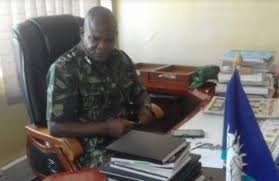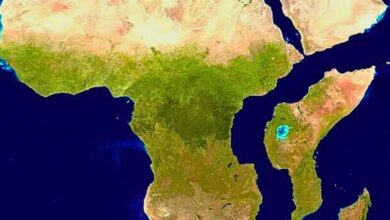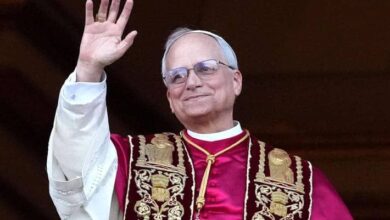Uncategorized
Investigator Bob Mtekama’s Mysterious Death Continues to Raise Serious Questions on Fight Against Corruption

By Sylvester Chibwana
Will Chakwera have that high and different resolve to outsmart this syndicate of corruption infested criminals that have rampaged and looted Malawi for decades? Just by looking at how the Malawi’s crimes syndicate has successfully recently entangled the ACB Director Ms. Martha Chizuma in the senseless audio leak drama, it’s safe to say Malawi has a mafia style syndicate of criminals coordinated from top Government, the Justice system and down to private sector rich cabal.
This syndicate has continued to pose a serious life threat to the faithful crimes busting officials since the dawn of multiparty democracy in 1993, and more threateningly increasing during DPP’s reign. This cabal of criminals in white collar jobs has continued to clandestinely terrorise Malawi for decades!
But who exactly killed the National CID Director and Deputy Police IG? What are the circumstances that led to Bob Mtekama’s sudden and mysterious demise? What criminal and corruption cases was he close to successfully indict criminals on? The post-mortem on the exhumed body of top corruption and crime-busting cop Bob Hamisi Stambuli Mtekama raises more questions about his death and seems to confirm suspicions that there was foul play involved.
At the time of his death, as the director of Malawi’s criminal investigation department and deputy police commissioner, he was handling a series of high-profile cases which involved a former president as well as high-ranking police and state officials.
When he died the police issued a glowing tribute to Mtekama but not one police officer attended his burial which was also conducted without any autopsy being concluded and without the fanfare usually afforded to top brass police officials.
President Lazarus Chakwera
When President Chakwera came to power in June 2020, he gave Mtekama the responsibility of leading the fight against crime and corruption as director of the CID and deputy police commissioner.
Two months later in August, Mtekama, was dead. Chakwera as well as the country’s Attorney General, Thabo Chakaka Nyirenda, agree that the death is suspicious. They have joined calls for the truth to be revealed, while the police seem to be making no progress on their investigation.
Nyirenda referred to one murder case that Mtekama had been investigating and pointed out that other detectives had also died while trying to solve one of the gruesome murder cases Mtekama was making progress on. In 2015, Issa Njaunju was brutally murdered. He was shot, and his official car set alight in what appeared to be the wrong target as he was using the ACB director’s car, and the assailants mistook him for his boss.
The Arrest of Mutharika’s Aide
Mtekama had arrested Mutharika’s head of security and ex-soldier, Norman Chisale, in connection with the murder. Njaunju’s phone was recovered in Kawale by a man who claimed that he bought the phone from a policeman believed to be Chisale’s brother-in-law.
“I don’t know if it is just a mere coincidence, but three detectives who took a lead in gruesome Njaunju’s murder before Mtekama all died in mysterious circumstances,” divulges the government’s head of the bar who has high praise for Mtekama who qualified as a lawyer shortly before his death.
“His agility to solve complex crimes was unmatched and unparalleled. He was so focused and the fact that he qualified as a lawyer, made him a very special detective,” added Nyirenda.
Mtekama was also closing in on the multi-billion cement-gate case and just days before his death, he had gone to Mangochi to interrogate former Malawian president, Peter Mutharika, and at the time he was rounding up Chisale, he also arrested the then director of state residence, Peter Mukhito, who was the police chief during the presidency of Bingu wa Mutharika, elder brother to Peter Mutharika.
In July last year, Norman Chisale declared to Times Media Group’s Wonder Msiska in a Times Exclusive interview that he could not wish Bob Mtekama’s soul to rest in peace. Chisale alleged that Mtekama wanted to finish him off, and he has a recording to prove his claims.
Norman Chisale former President Peter Mutharika’s security Chief
The crime-buster was also investigating the death of Buleya Lule, a suspect in a spate of killing of people with albinism who had started implicating some top politicians including Mutharika. Mtekama had arrested Norman Chisale’s ex-wife, Evarista Chisale, who was then the acting commissioner of police for the central region. Twelve other police officers had also been arrested. All were connected to Lule’s killing in the police cell.
Mtekama, who was the first and only Malawian cop to be trained by the FBI in criminal investigations, also worked on the deaths of Robert Chasowa and Kalonga Stambuli. Chasowa was a politically exposed University of Malawi student who pushed down a set of stairs and died. Police are suspected of being involved. The matter is yet to conclude.
Stambuli died in 2003 after his return to Malawi. Initially, he was former President Bakili Muluzi’s Chief Economic Advisor who fell out with his boss when he wrote a damning expose cataloguing Muluzi’s alleged corrupt deals and fled into exile. Muluzi’s successor President Bingu wa Mutharika set up an inquiry following complaints from Kalonga’s mother, relatives, and associates who suspect foul play. The matter also remains inconclusive
A month before his death, Mtekama met Anti-Corruption Bureau director, Martha Chizuma, who was by then the Ombudsman, and by extension, also a commissioner at the Human Rights Commission as well as the police service commissioner.
Chizuma says Mtekama assured her at that time that he was going to get all the unsolved cases to their logical conclusion, but sternly warned her to be very careful because the people involved were ‘very dangerous.’
“When I met Bob (Mtekama) as a police commissioner to discuss the cases he was handling, I pledged to him my full support. I told him I would work with him. He was so passionate about his work.”
“One day, he called me and said, Madam, you need to be very careful, and you need to increase your security. These people can do anything to stop the course of justice. When I heard he died, I was shocked, but his warning rang a bell, he knew,” said Chizuma in an interview soon after Mtekama’s death.
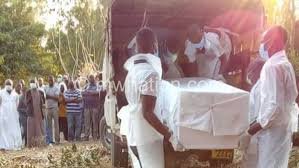
Mtekama’s Journey to Lilongwe and Blantyre Hospitals
The strange circumstances of Mtekama’s admission to the hospital and death began when he was first admitted to the hospital in Lilongwe with a burn wound on his leg that would not heal.
The diagnosis was that he was in toxic shock caused by a septic diabetic wound. The attending doctor, Dr Patrick Watayachanga Chirwa, reported that amputation was being discussed, and theatre teams were ready. But, before the operation happened, the hospital received an instruction for him to be moved to a private hospital in Blantyre.
Dr Chirwa did not disclose who issued the instruction to have Mtekama transferred to Blantyre to Adventist Hospital. The family were also not told who had issued an instruction for Mtekama to be transferred to Blantyre.
“They never communicated anything to us. We don’t know who issued the instruction and the hospital did not give us information, and they acted strange, and we feel they were hiding something,” said a family member opting for anonymity for fear of reprisals.
Hospital doctors at Adventist Hospital in Blantyre said that their tests had shown acute damage to his kidneys, liver, and lung dues to diabetes. They never suggested amputating his leg.
Blantyre’s Adventist Hospital has officially reported that blood tests done on Mtekama when he was admitted showed that he had kidney failure because of high urea. Doctors report that this was the cause of his confusion and fast breathing.
Blantyre Adventist Hospital in its report is written, signed and submitted by a specialist physician, Dr Albert Mwafongo, and reads in part:
“Despite attempts to correct the acidosis and fluid replacement, he remained unchanged and at that time the clinical impression was acute kidney injury possibly from overwhelming wound infection in a patient with diabetes.”
Dr Mwafongo submitted to the inquest that the cause of death was therefore cardiorespiratory failure secondary to severe pneumonia from Coronavirus infection, with contributing causes of death being acute kidney disease.
Genesis of Family’s Suspicions
Two days after being admitted to Blantyre Adventist Hospital, Mtekama passed away. Mtekama’s family does not believe the reasons given for his death, especially the Covid-19 diagnosis because he was treated in a general ward. He was not isolated, as was required that patients infected with the virus to be.
“Why was Mtekama in a communal ward if, he was positive? At what point did Blantyre Adventist realise that he had corona? When and where did Bob catch the coronavirus, was it in the hospital? Why did Lilongwe Private Hospital not detect coronavirus with all the tests it undertook?” questions a family member.
“I think the coronavirus story was used to avert the truth on the real cause of death and also to make sure that he was quickly buried without an autopsy or any investigations into the death,” laments the family member.
The hospital Covid-19 test result certification, which we have in our custody, which was tendered to the coroner’s inquest as part of the evidence has no signature, or hospital stamp has no date when the test was conducted, who conducted and a wrong date of birth on it.
Mtekama’s body was also taken to its burial site in Nkhotakota without healthcare workers, as was the case with Covid-related deaths. It was buried without following Covid-19 protocols.
Mtekama’s Inquest
Mtekama’s family believes he was poisoned. After his death, they asked Malawi’s Human Rights Commission to investigate the circumstances of his death. A year after Mtekama’s death, in August 2021, the then Director of Public Prosecutions (DPP) Dr Steven Kayuni moved the court to investigate Mtekama’s death.
The High Court of Malawi agreed and ordered an inquest. A year after this ruling, the body was exhumed from its grave in Nkhono village in the Traditional Authority Malengachanzi which is in the lakeshore district of Nkhotakota.
The exhumation was overseen by the country’s two leading pathologists, Professor George Liomba and Dr Charles Dzamalala. The results of the autopsy conducted on the exhumed body contradicted the diagnosis given by Blantyre Adventist Hospital, with a finding that there was no damage to Mtekama’s internal organs.
Specimens from his exhumed body have been sent to South Africa and Europe for forensic examinations—a process that will put the matter to rest whether the former head of CID was poisoned or died of natural causes.
In an interview, one of the pathologists, Dr Dzamalala, confirmed that late Mtekama’s internal organs were intact and unaffected and emphasised that “it was very interesting.”
Top Pathologist Dr. Charles Dzamalala
Dzamalala said: “I can confirm that upon exhumation, Mtekama’s internal organs were intact, and we have sent the specimen for examination abroad for further investigations and examination. We will wait for the results.”
“But it is fascinating and soon Malawians will know the truth,” he said.
Dzamalala declined to be drawn further into the minute details of the matter, saying: “Let’s wait for the results. All I can say is that it is interesting.”
Lack of Autopsy and a Suspicious Visitor
A government senior medic, who chose not to be identified, said in another interview that it is strange that a person of Bob Mtekama’s calibre and prominence, could just be buried without conducting an autopsy to establish the real cause of death.
“Only an autopsy gives the correct cause of death of a person. Just because one is diagnosed with malaria in a hospital, if the person dies, it doesn’t automatically mean that the cause of death would have been caused by malaria.”
“One can be diagnosed with typhoid fever, for example, or indeed any other ailment but can die of another ailment or reason, for instance, poisoning or could pick up a virus in the hospital and that is why a post-mortem is significant in determining the cause of death,” said the medical doctor.
The Mtekama family has also told authorities about a mysterious visitor who came into Mtekama’s room at 4 am after he was admitted to Adventist Hospital in Blantyre. The man told a family member who was in Mtekama’s room at the time, that he was a welfare officer who had been tasked with instructions to check on Bob by the then Commissioner of Police for the Southern Region, Sileji Yusufu, who is now retired.
Says the family member who does not want to be named for fear of reprisals: “He looked very suspicious. It was by the grace of God that I saw him, otherwise, he could have sneaked in and out without being noticed.”
“Whatever he was saying did not make any sense. Why would welfare come at 04:00 am to see a patient and if he came in good faith, why did he not come through the family?”
The family explains that it was later on this day that Bob’s condition worsened, and this made them believe that the man who sneaked into Bob’s room might have done something.
“And the way the police behaved and acted after Bob had died just confirmed our fears. We are saddened at how he was treated after all he gave in service to his country and to the Malawi Police Service in particular,” he mourns.
During the inquest, the retired commissioner for the South Sileji Yusuf, Commissioner for the South Lenford Kamphika and Sub-Inspector Kesta Kapawala, the Police Regional Welfare Officer in the Southern Region, testified before the coroner.
In an interview with a local daily in 2021, when it was put to him that the finger of evidence points to him, Yusufu said he could not harm Mtekama because he was a fellow Muslim brother.
It is alleged that it was Yusufu who was making decisions as the police’s senior officer in the Southern Region, and that it was he who ordered that Bob’s body should be dispatched as soon as possible and that it should be buried without police military honour.
These allegations from the family about Yusufu could not independently be verified.
Investigations indicate that on the day the man sneaked into Mtekama’s hospital room in the wee hours of August 4th, 2020, the day the chief crime investigator died, CCTV cameras at Adventist were coincidentally not working hence there is no footage to really establish what the suspicious man did in Mtekama’s room…
The Police Reaction to Mtekama’s Death
When public pressure for answers around Mtekama’s death started mounting, and long before the inquest, the then Inspector General of Police George Kainja said he had instituted a commission of inquiry to investigate the death of the head of criminal investigations.
But when asked months later as to what the investigations have yielded, Kainja could not give any details on the investigations.
A year and some months later, Kainja was relieved of his duties on June 22, 2022 by President Chakwera after a revelation that he was suspected to have been involved in graft activities linked to the corruption case of businessman Zuneth Sattar. Kainja was arrested and charged with corrupt practices by the ACB.
When contacted in early December last year to shed light on what is happening with Mtekama’s death investigations, the incumbent Inspector General of Police, Merlyne Yolamu said she was not in the country, saying she was away in Zambia on a tour of duty promising that once she returns home, she will be able to answer all the questions regarding the matter.
Police IG Yolamu
However, when Yolamu returned home to Malawi, efforts to solicit the promised information on Mtekama’s investigations proved futile as she ignored a salvo of phone calls and blue-ticked all the WhatsApp messages sent to her.
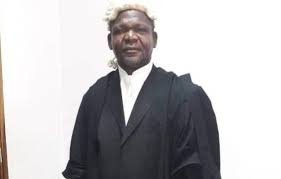
A Widow’s Perspective
In an exclusive interview, Caveness Mtekama, amid sobs, said: “I don’t believe Bob died of natural causes. But one thing I know is that there is God out there and the truth will come out.”
“In his life, Bob fought for everyone’s justice, and in his death, we will fight for his justice.”
She said her husband has had diabetes for many years, and he used to manage it by taking his medication, eating a carefully balanced diet and a dose of exercise.
“It is strange how this time he got so ill with it, and deteriorated so rapidly. So many strange things happened to lead to his death, but only God knows, and we believe that truth will be out—all we want is justice for Bob—and so, he can rest in peace,” she quipped.
As senior and important as he was, he was buried without any police military honours, as was the case with other senior police officers who died of coronavirus at the time and were buried by the police special medical team with the military rites accorded to them.
“As for Bob, as strange as it sounds, no police officer attended the burial. He was buried like an ordinary civilian. Bob was abandoned, deserted and forsaken while out there the police were putting up a show to the public pretending to have lost someone special and in reality, nobody really cared,” mourns another family member.
Ruffling Political Feathers
Mtekama joined the Malawi Police Service in 1992, and he first served in Malawi’s colonial capital city, Zomba, where he started out as a general duties officer. It was in Zomba that he was recruited into the Criminal Investigations Department, and he soon made his mark.
He was then posted to Soche Police in Blantyre, where he became known for his criminal investigations prowess. He was later transferred to Blantyre Police station as head of the CID for Blantyre City and the entire district.
In no time, he was appointed as head of CID for the Southern Region, where he continued to stamp his authority as a top detective.
Former President Bingu wa Mutharika
In 2004, when president Bingu wa Mutharika was elected Republican president, Mtekama was appointed as the national director of the Criminal Investigations Department at Police headquarters in Lilongwe.
It was at that point that Bob Mtekama made an indelible mark as a no-nonsense top law enforcer as he declared war against criminals—he even established a national crime combat group named ‘Flying Squad’ whose aim was to fight criminals in the country’s cities and districts with extra-bravado.
But Mtekama ruffled a few political feathers during that time, and he became a constant pain to many politically-connected people, he was banished into exile and reverted to general duties. He was sent to Chintheche, then Karonga before Mzuzu for a short stint before he was sent back to Karonga.
Mtekama in his heydays in Police regalia
Mtekama was later recalled back to head the CID in 2012 when Joyce Banda ascended to power, and he picked up all unsolved high-profile cases and rounded up many a politician for criminal activities and syndicates.
Two years later, after Joyce Banda was ousted and the DPP with President Peter Mutharika on the saddle, Mtekama was banished yet again and was sent to the Muloza Police unit to be the officer in charge.
Frustrated, Mtekama took a sabbatical leave from the police and went to Zanzibar, where he studied for a bachelor of law degree (LL.B). When he returned home after completing his studies, he was deployed as Limbe Police Station officer-in-charge, as at that time he was studying towards being admitted to the bar.
He was also the first and only Malawian police detective to have been trained as a forensic science detective by the University of Malawi’s College of Medicine.
In 2020, when President Lazarus Chakwera was elected president, he re-appointed Mtekama as head of CID. Within just two months of his appointment, the Crime buster scaled up to his reputation and cracked all the abandoned high-profile cases. Will Malawians ever see justice in the so many old cases and also recently the corruption and criminal cases that the ACB has opened? It now looks like the criminals have been successful at stalling or at most stopping progress on those high profile cases. It remains to be seen whether Chakwera has high resolve to outsmart this criminal syndicate that has rampaged and looted Malawi for decades.
